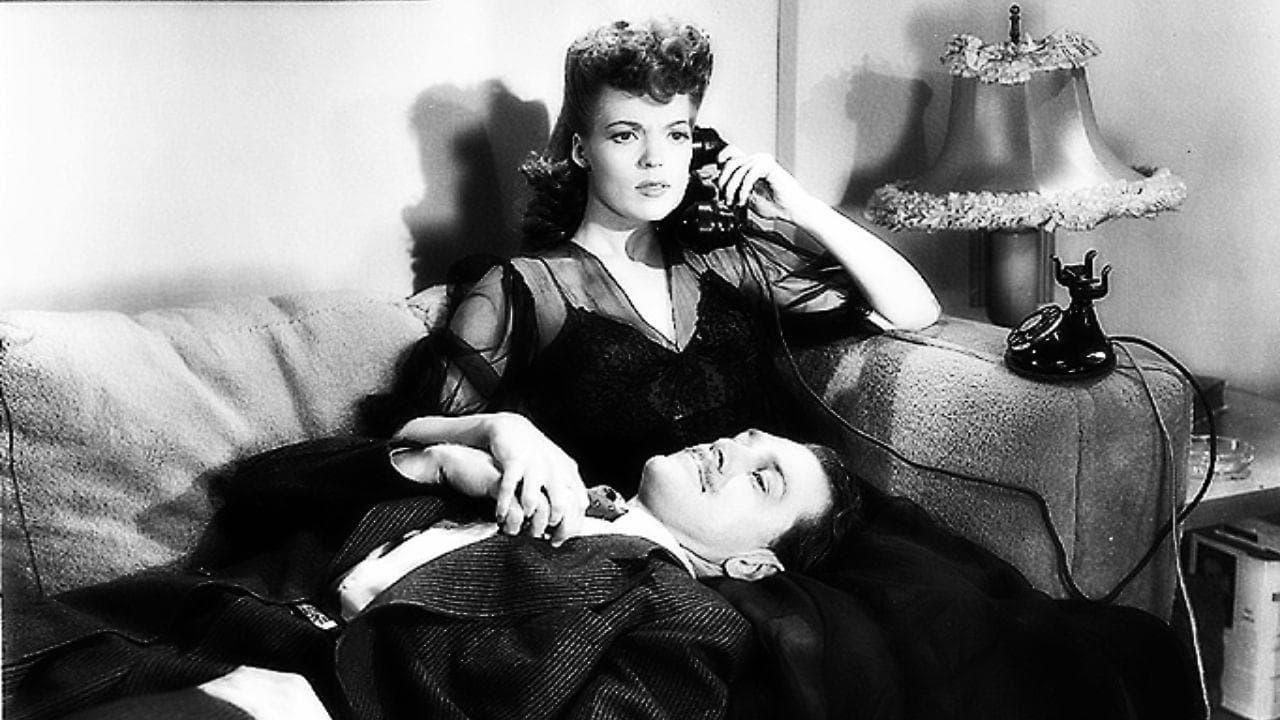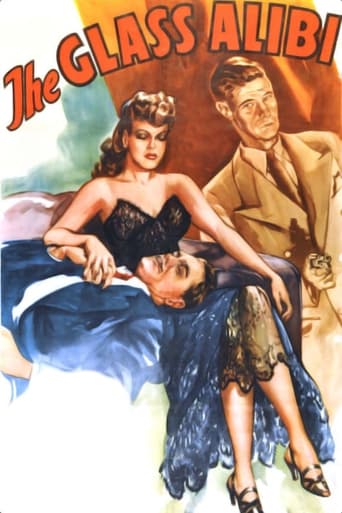



Terrible acting, screenplay and direction.
Disturbing yet enthralling
It isn't all that great, actually. Really cheesy and very predicable of how certain scenes are gonna turn play out. However, I guess that's the charm of it all, because I would consider this one of my guilty pleasures.
View MoreThe joyful confection is coated in a sparkly gloss, bright enough to gleam from the darkest, most cynical corners.
View More'The Glass Alibi' is a no-budget grade-Z film noir, featuring a clever double-twist ending that I genuinely didn't anticipate.I'll credit actor Douglas Fowley with one of the greatest film performances I've ever seen, as the excitable silent-film director in "Singin' in the Rain". Most of Fowley's many, many other film performances are too small to require much acting ability. In 'The Glass Alibi', although third-billed, he has the lead role ... and his part is large enough to prove that he's a lousy actor when he hasn't got a first-rate script and direction. Fowley gives a one-note performance here as a cynical newspaperman.Paul Kelly is one of those character actors whose real life is more interesting than the characters he played. Kelly tended to play incorruptible authority figures, but was more believable in rare outings such as 'The Roaring Twenties', in which he played a violent and utterly amoral criminal. In real life, Kelly did two years for manslaughter. Here, he plays an honest homicide detective who has known Fowley since boyhood.The most interesting credit in this movie is the director: W. Lee Wilder, in this film and others, showed absolutely no talent as a director ... yet he was the older brother of Billy Wilder, one of the most important scripters/directors in the history of film. Apparently the brothers never got along: Billy often claimed that his entire family had been killed by the Nazis (which might have been his way of denying all knowledge of W. Lee's existence). In the entire running time of 'The Glass Alibi', there is only one slight bit of directorial cleverness. Early in the film, a tight close-up shows Anne Gwynne on the phone, assuring her gangster boyfriend that she still loves him ... while the camera pulls back to reveal Doug Fowley's head on her lap!Maris Wrixon (nice face, nice figure, hideous name) plays a millionairess with only six months to live. Her performance is warm and vivacious, which is part of the problem: she shows no bitterness, none of the behavioural traits of the terminally ill that were described by Elisabeth Kübler-Ross. Wrixon's character has got one of those old-movie diseases that enables her to stay good-looking and energetic while assuring us that her days are numbered. When Fowley pretends to be romantically interested in her, Wrixon doesn't consider that he might have ulterior motives for marrying her.Anne Gwynne, whom I normally equate with good-girl roles, is splendid here as a tough tootsie. She performs one long scene in a tight-fitting dress that had me hoping she would sneeze.This film has NO production budget! When the radio stations in this movie aren't broadcasting police bulletins, they're all playing classical music (public-domain; no copyright problems). Homicide cop Kelly works out of a room that looks like a bank executive's office, with a secretary at a separate desk: the filmmakers clearly weren't able to afford a convincing squad-room set. Wilder is the producer of this film as well as its director, so I'll give him the blame for its terrible look. There are a couple of good lines of thick-ear dialogue: "While he's on ice, we'll be dancing at La Paree."After Fowley marries Wrixon with the intention of inheriting her millions, he decides she isn't croaking fast enough. He and Gwynne cook up a James M. Cain scheme to bump her off.I said there was a clever double-twist ending. Well, half right. The first twist completely surprised me; it was unexpected yet utterly plausible. But after that one hit me, the second twist was obvious. There are good performances by George Chandler (as a bartender who vaguely symbolises destiny) and by Victor Potel as a petrol-station attendant whom Fowley deliberately aggravates, so that Potel will remember him later and provide an unwitting alibi. Paul Kelly phones in his performance; he should have stuck to playing villains. I'll rate this movie only 4 points out of 10.
View MoreA reporter marries a dying heiress though in love with the moll of an imprisoned gangster. When it appears his wife is in no hurry to die, the reporter and his girlfriend plan murder with an airtight "alibi." Alas, things do not go as planned (do they ever in the movies?). This may seem dated now but when viewed from its release date of 1946, it is a nifty thriller with good plot twists.
View More